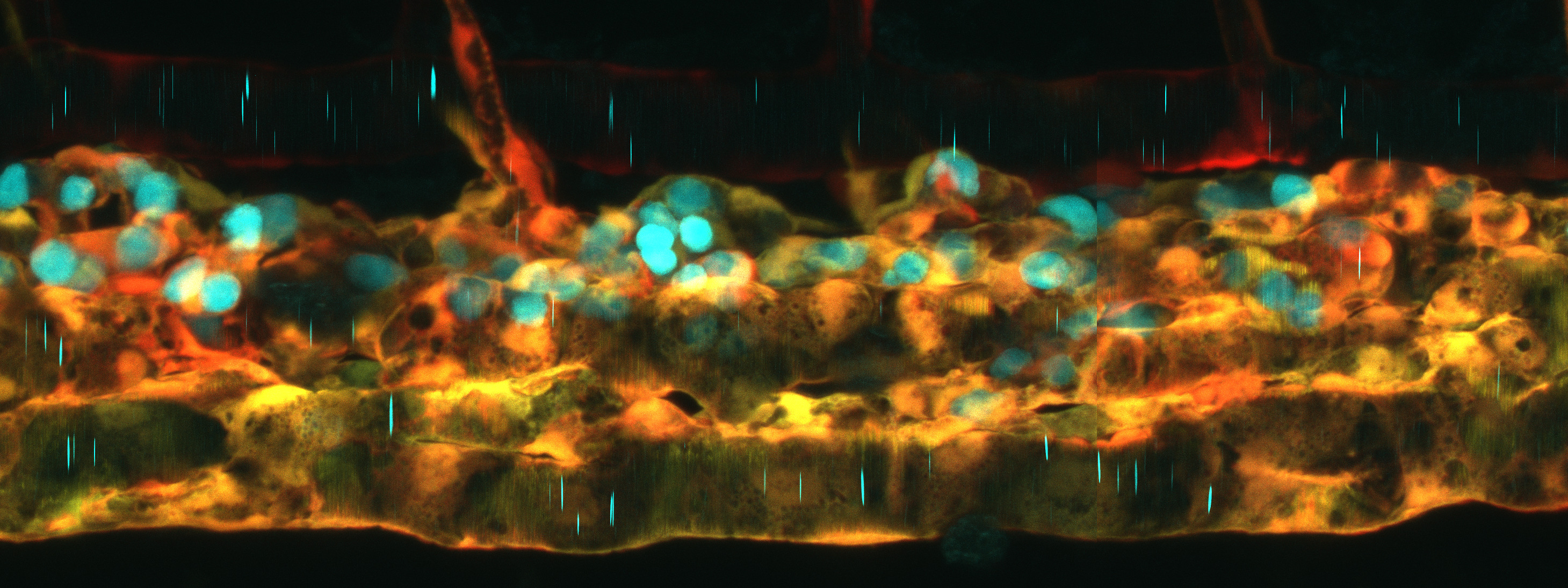Career Corner: Alternatives to Academia
Career Corner: Alternatives to Academia
By: Maria Blumenkrantz
Ph.D. Candidate, Smeeton lab, Columbia University
While pursuing an academic career is a popular choice for those who complete a PhD or postdoctoral fellowship in a zebrafish lab, many successfully apply their skills and knowledge to a variety of other industries. To introduce early-career members of IZFS to the wide range of non-academic career paths available to them, we are launching “Career Corner: Alternatives to Academia”, a new issue where we detail the career trajectories of former zebrafish lab trainees who pursued non-academic positions.
Our first profile is of Dr. Sarah Cheesman, who is currently the VP of Strategic Partnerships at InVivo Biosystems and has experience working in technical sales, project management, and the nonprofit sphere. Prior to her transition out of academia, Sarah immersed herself in zebrafish research at the University of Oregon, where she completed her PhD and a postdoctoral fellowship. The NSF Integrative Graduate Education and Research Traineeship Program (IGERT) funded her graduate research, which addressed questions of evolutionary development under a co-mentorship between Dr. Judith Eisen and Dr. Chris Doe. Harnessing her training in both zebrafish and drosophila labs, Sarah made significant strides in decoding transcription factors fundamental to dorsal-ventral patterning in the central nervous system. Strikingly, Sarah succeeded in inducing motor neuron formation in zebrafish by overexpressing proteins from the fly. Sarah then chose to pursue a postdoctoral fellowship in Dr. Karen Guillemin’s lab during the burgeoning era of bacterial-host interactions. In the Guillemin Lab, Sarah utilized her zebrafish expertise to develop zebrafish as a new model to study the effects of the microbiome on health and development.
With her mentor’s support, Sarah began exploring non-academic trajectories in science. The realization that her lab also received funding from non-government sources highlighted to Sarah the importance of private money in advancing scientific progress. Consequently, she sought out a volunteering opportunity at the University of Oregon’s development office (now known as the advancement office) to introduce visiting donors to the science taking place on campus. Sarah was eventually offered a job at the development office - her first role in what she described as a “civic scientist”, i.e., someone who works to broaden interest and knowledge of science among the general public.
After 5 years at the development office, Sarah was invited to join the board of Ophelia’s Place, a nonprofit organization founded by one of the University of Oregon’s donors, Rosaria P. Haugland. As part of Ophelia’s Place, Sarah strove to increase the empowerment of women and girls. She derived great value from this role, as she was able to see the immediate impact of her work. Sarah learned that due to the malleability of smaller organizations such as Ophelia’s Place, she had enormous opportunity to make positive change by implementing different programs and strategies.
In 2019, Sarah started feeling the itch to re-enter the world of biology - but this time, she wanted to explore the business side of science. As a result, she joined her current company, InVivo Biosystems, originally working in project management. At the onset of the COVID-19 pandemic, Sarah was asked to step into a Technical Sales Scientist role at the startup. She has since progressed to serving as the Vice President of Strategic Partnerships. Sarah’s experience working in academic zebrafish labs came in handy at InVivo Biosystems, as the company uses CRISPR genome editing to create custom zebrafish (and C. elegans) models. While InVivo Biosystems works with several academic research institutions, the startup has increasingly been helping pharmaceutical and biotechnology companies develop zebrafish as a viable tool for use in preclinical research and therapeutic target identification/validation.
Sarah’s role as the VP of Strategic Partnerships at InVivo Biosystems involves managing, supporting, and mentoring the sales and marketing team. Specifically, Sarah helps the team connect with new clients and make decisions that will address the needs of current clients. Customers include academic PIs as well as biopharmaceutical and biotechnology companies all over the world. From business development to experimentally solving problems, Sarah harnesses a wide range of skills to connect customers with the products and services offered by InVivo Biosystems. To be successful in a technical sales role, Sarah recommends building relationships and having genuine curiosity about clients’ scientific questions and progress. Though sales is an outward facing role, being an extrovert is not a strict necessity. What is fundamental to excelling in the job, however, is having interest in learning about many scientific fields in a broader context - a technical salesperson may find themselves speaking with different clients about anemia, muscular dystrophy, and Parkinson’s all in one day.
Reflecting on her various experiences in both the nonprofit and for-profit sectors, Sarah drew parallels between the skills required to effectively conduct fundraising efforts for nonprofit organizations and be a successful salesperson in the for-profit sphere. During her time at Ophelia’s Place, Sarah realized that her graduate school experience had prepared her well for a non-academic career by cementing her skills in science communication (both verbal and written), data management, and data visualization. While it was not a requirement for her positions, Sarah’s postdoctoral fellowship benefited her by broadening her horizons and introducing her to additional experiences that informed her career trajectory.
Sarah’s postdoc mentor, Karen Guillemin, gave Sarah a piece of advice that resonated with her: “You create your own luck”. This contributed to Sarah recognizing the importance of putting in active time and effort to figure out her next steps and career goals. To current graduate students and postdoctoral fellows, Sarah recommended carving out dedicated time to research the different paths to non-academic careers and think about the type of role that may be a good fit for you. In addition to starting this process as early as possible, Sarah emphasized the value of being bold and contacting people who work in the positions you are interested in - most are willing to pay it forward.




